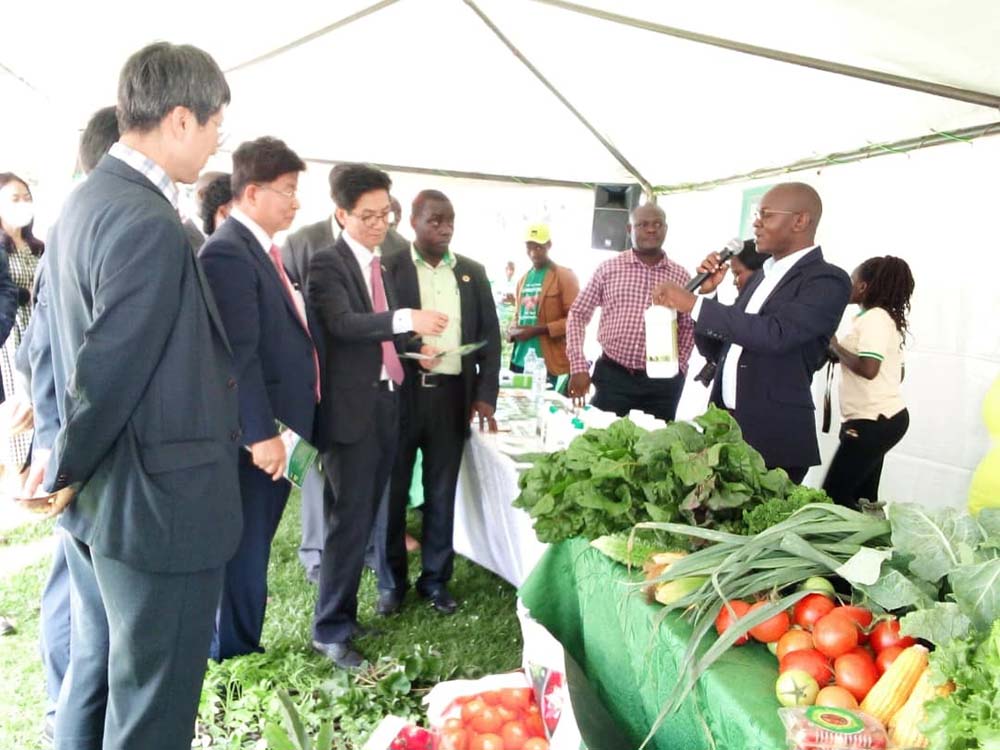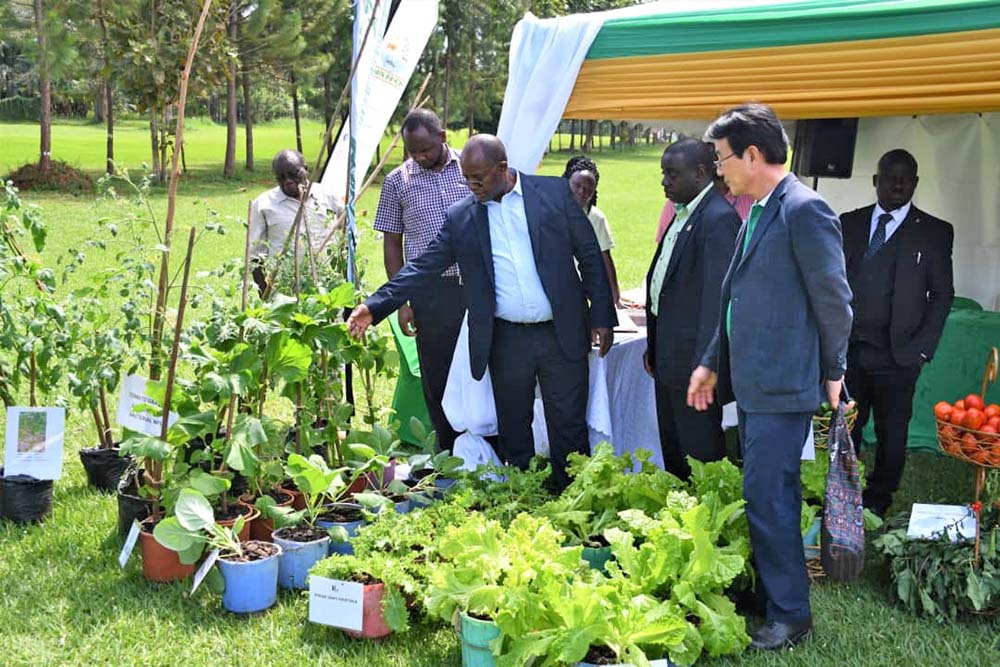Farmers are set to stop importing seed for vegetables such as Cabbages, Onions, Chili and tomatoes, following the signing of an MOU between the Government of the Republic of Korea through the Korea International Cooperation Agency (KOICA) and Uganda, through the National Agriculture Research Organization (NARO).
Under the MOU, Korea has set aside $8m that will help researchers in NARO to develop seed for the five selected vegetables that include tomatoes, nakati and the three mentioned above.
Farmers have been importing most of the seed including onions, cabbages, because Ugandan weather couldn’t support seed production for these particular crops. For those importing tomato seed, they have been parting with close to sh1m per kilogramme, adds Christopher Nsamba, a horticulture farmer from Namulonge Horticulture Farmers Association.
Apart from developing the seed, part of the money will be used to train farmers to become seed producers, equip researchers with latest technologies in seed production as well as infrastructure development in the horticulture sector among others, for the next nine years.
The project that is targeting farmers in the districts of Wakiso, Luwero and Mukono will be stationed at the National Crop Resources Research Institute (NaCRRI), which is also the coordinating research institution.
Officiating at the launch, the ambassador of the Republic of Korea, Park Sung-soo revealed that Korea has committed up to $8m towards the implementation of the project as part of their commitment to support Uganda attain a middle-income country.
“Having undergone similar challenges and development processes like Uganda, through the VegeSeed project, we seek to share Korea’s know-how to support Uganda to improve its seed system to reach international standard and develop vegetable seed varieties most suitable for the country’s environment,” Ambassador Park said.
He further emphasised that Uganda and Korea have begun a new chapter in the history of vegetable seed breeding which will contribute to having Ugandan-produced vegetable seed for now and the future.
Park Sung-soo also appreciated the high development potential that Uganda has as well as the effort that the government is making for socioeconomic transformation, and added the willingness that Korea has to be sustainable, mutually-benefitting partners with Uganda.
“It is my sincerest hope and belief that through this project, we will enjoy mutual development as well as a strengthened partnership between the Republic of Korea and Uganda” he said.
The VegeSeed Project will contribute to laying the foundation for the mid-to-long-term development of new vegetable varieties in Uganda, strengthening the seed certification system and disseminating certified seeds for five (5) vegetable crops; nakati, tomato, onion, cabbage and chili pepper.

It is hoped that at the end of the project, there will be established infrastructure for vegetable breeding and certification, and empowerment of human resource capacity; establishment of infrastructure for certified vegetable seed production and building of farmers’ capacity; and improvement of distribution, dissemination, and farmers’ awareness of certified seeds.
The director general of NARO, Dr Ambrose Agona, while addressing participants echoed NARO’s commitment to strengthening horticultural research to address challenges in the subsector which have constrained its production, which if addressed, will lead to the upgrading of the horticultural research programme to a stand-alone institute.
“Therefore, capacity building and increasing partnership in the subsector will be key to leverage germplasm, technologies and new research tools to accelerate the rate of development of horticultural research products including varieties and their deployment for import substitution,” he said
At the same event, the minister of state for agriculture, Fred Kyakulaga Bwiino, said the project will support the government’s plan for small holder farmers, under the Parish Development Model.
“The Government of Uganda prioritised horticulture as an important commodity to increase household incomes, food and nutritional security,” he said.
Currently, the sector earns the country $34m from the sale of 5.3 metric tonnes of vegetables grown in Uganda.






